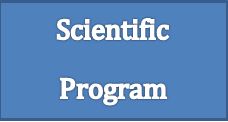
Gulnara Kahakimova
“NPF â€Materia Medica Holding, Russia
Title: Modern tool of pathogenetic therapy as exemplified in application of antibodies to S100 protein in the released-active form
Biography
Biography: Gulnara Kahakimova
Abstract
For mental disorders most commonly applied drugs are benzodiazepines and selective serotonin reuptake inhibitors. However, these drugs have a number of side effects which limit their use in ambulatory practice, especially for people whose profession requires quick mental and motor responses. Furthermore, long-term use of such drugs creates a high risk of mental and physical dependence.
Methodology & Theoretical Orientation: The alternative is to correct violations of brain integrative activity. That could be done by modulating the functions of endogenous regulatory molecules, for example, those of S100 protein. It is involved in the pathogenesis of different psychiatric disorders. S100 function can be influenced by the use of antibodies. Modulation of S100 proteins’ functions is a key mechanism of action of Tenoten® and Divaza® – drugs presented on Russian and CIS pharmaceutical markets. As the active pharmaceutical ingredient they contain antibodies to S100 in released-active form (RA anti-S100) produced by ultra-high dilution technology. It was found that these types of drugs can modify conformation of their targets and thereby change the strength of ligand-receptor interaction. Spectrum of RA anti-S100 pharmacological activity has been shown in the numerous experimental
and clinical studies.
Findings: It has been proved that RA anti-S100 have anxiolytic, antidepressant, anti-stress, anti-aggressive, nootropic (anti-amnestic,
neuroprotective) and neurotrophic activities without sedative and muscle relaxant effects and any type of dependence.
Conclusion & Significance: Treatment with drugs containing released-active forms of antibodies to S100 protein is modern tool of
pathogenetic therapy.

